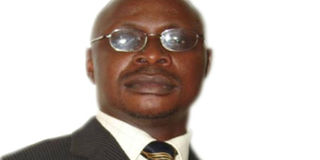Mr Museveni Sir, leaving power in 2021 is a very personal matter

Asuman Bisiika
On Tuesday, November 5, 1985, president Julius Nyerere of Tanzania handed over power to Ali Hassan Mwinyi. Wasn’t this the first time a leader had peacefully handed over power in post-colonial Africa?
Nyerere was a ‘youthful’ 63-year-old and had been in power for a mere 23 years when he handed over to 60-year-old Mwinyi.
The constitution didn’t bar Nyerere from continuing to rule his country. Neither were there poor popularity ratings.
But that act of leaving power voluntarily has lionised Nyerere; even after conceding that he had made grave mistakes during his tenure.
This means leaving power (voluntarily or as a requirement of the constitution) takes depth of character. It is personal to user.
This is an excerpt from an earlier paper I wrote on African political leadership titled ‘The state and statesmanship in post-colonial Africa.’
It offers us study points to enrich the ongoing ‘informal’ debate on the constitutional provision that requires a presidential candidate not to be above 75 years of age.
*****************
In 2005, two presidents changed the constitutions of their respective countries in order to run for a third term of office in 2006. They are President Museveni of Uganda and Idris Deby of Chad.
The following year, five African leaders were re-elected to a new term of office that would keep them in power for more than 10 years. They are President Yoweri Museveni of Uganda, Meles Zenawi of Ethiopia, Idris Deby of Chad, Hosni Mubarak of Egypt and Yahya Jameh of Gambia.
A keen observation of the five presidents cited betrays a pattern - the processes that brought them to power. All of the five leaders mentioned above came to power through military processes of different manifestations.
However, it is important to note that only two of them are still in power: Museveni of Uganda and Idris Debby of Chad. Meles Zenawi died. Hosni Mubrak of Egypt was overthrown in a bloody popular uprising and Yahya Jameh was ‘massaged’ into exile after losing an election.
The challenge, therefore, may not be that of leaders lack the depth of character to dig deep in their hearts to get the courage to voluntarily step down from power. The challenge could be the guns they use to acquire power.
Africans should, therefore, make sure that ‘men of the gun’ (in whatever manifestation), are kept as far away from political power as possible. This represents the biggest political debate in post-independent Africa.
Presidents Nyerere, Joachim Chissano of Mozambique and Nelson Mandela (RIP) of South Africa voluntarily offered not to seek re-election even when they were still popular and not constrained by any constitutional provision.
Presidents Daniel arap Moi of Kenya, Alpha Konare of Mali, Jerry Rawlings of Ghana, Tejan Kaba of Sierra Leon and Ben Mkapa of Tanzania left power gracefully because they respected the constitutional provisions that disqualified them from seeking another presidential term. Kenneth Kaunda of Zambia and Abdou Diouf of Senegal left power gracefully when they lost elections.
**************
I had wanted to write about the Western media’s blitzkrieg attacks on president Paul Kagame. But Hassan Ntiyamira, an old friend from my heady days in Kigali (now a Kagame’s aide), recently advised me to keep off Kigali issues. I owe Ntiyamira a favour and I am, therefore, inclined to respect and heed his advice. In spite of Ntiyamira’s good counsel, I will say this with the certitude and exactitude of proven science: As you read this, Paul Kagame is the president of the Republic of Rwanda.
Mr Bisiika is the executive




